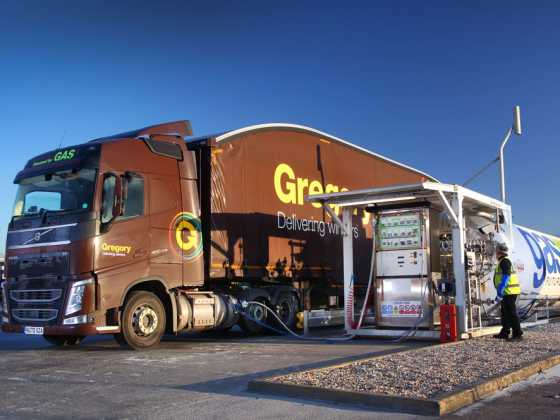Managing an SME fleet effectively

The SME fleet management role requires a credible level of skill, knowledge and experience, supported by attention to detail, numeric accuracy and people management skills. ICFM’s Peter Eldridge shares some advice on how best to manage an SME fleet
The challenges associated with managing small to medium fleet enterprise businesses (SMEs) have remained fairly consistent over the past few years – linked to a desire to enjoy large fleet benefits in terms of reduced cost and high service delivery but achieving it with a reduced level of available funds, resources and perhaps skill and knowledge.
The advent of Big Data has provided opportunities for SMEs to enjoy greater levels of attention as a customer segment, driven largely by a supply chain and vehicle leasing broker market that can now provide elegant and sophisticated service offerings within an economy of scale cost base.
This has produced two main outcomes: SMEs now have the opportunity to ‘punch above their weight’ in respect of managing their vehicle fleets and achieve much improved levels of operational efficiency.
And conversely, with some SME fleets, this raised level of service offering has actually become a millstone and exposed gaps in their fleet operations, mainly involving skill and knowledge.
Who manages the fleet?
What are the fleet management options for an SME fleet? There are only three options: Employ a dedicated fleet manager or administrator; nominate an existing core business director or manager to take on the role, or outsource to a fleet management company.
The decision regarding which option is best, will of course depend on the nature and structure of a business; the size and composition of the vehicle fleet; and the economics associated with each option. But the fundamental rule is that no two businesses are alike and the final decision must be geared to achieving the best outcome for the business in question.
This article is focussed on providing guidance for options one or two above and the key message is that if the decision is to manage the vehicle fleet in-house, it requires a dedicated approach to do the job effectively, which cannot be successfully fulfilled by delegating the responsibility to an existing employee, with inadequate skill levels, on an ad-hoc basis.
The SME fleet management role requires a credible level of skill, knowledge and experience, supported by a penchant for attention to detail and numeric accuracy, coupled with a talent for negotiation and people management skills.
Vehicle acquisitions
Managing a vehicle fleet in 2019 and beyond involves the usual ‘hygiene’ factors that include: vehicle contracts; service, maintenance and repair (SMR); mileage management; short-term hire; breakdown assistance; insurance and incident management; driver support services; cost control, and so on. But, in addition there are more strategic goals that need to be achieved.
The first of those goals is to develop a vehicle acquisition policy that has specific emphasis on environmental control and meets with government policy to end the sale of new conventional petrol and diesel cars and vans by 2040, as it is has already announced. Although the Government’s advisory Committee on Climate Change is calling for that date to be bought forward to 2030 or 2035 at the latest, potentially perhaps just two fleet vehicle replacement cycles away.
In addition, by 2030 the government also expects 50-70 per cent of new car sales to be ultra-low emission vehicles (less than 75g/km of CO2) and up to 40 per cent of vans. With just 2.6 per cent of cars registered in 2018 being ultra-low emission and only 0.5 per cent of vans, the clock is already ticking.
The availability of ultra-low emission vehicles is playing catch-up with those targets and to make matters even more difficult, last year’s implementation of the Worldwide harmonised Light vehicles Test Procedure (WLTP) emissions and fuel economy testing regime and the level of uncertainty surrounding Brexit, has contributed to lengthy vehicle manufacturer lead times for low and ultra-low emission vehicles.
So planning a vehicle acquisition policy in the current business climate is not easy and given all the current contributory factors, SMEs, like their larger fleet peer group, will need to take a prudent and pragmatic approach if they are to succeed.
SME fleet managers will have to analyse their vehicle fleet in sectors: cars and LCVs; essential users/‘perk’ allocation; high and low mileage; and usage trends (particularly the low mileage segment).
Then they’ll have to take a ‘blended’ approach to aligning the best mix of powertrain options: battery electric vehicles; ultra-low emission vehicles; and petrol/diesel.
Consideration of the alternative options include cash for car; grey fleet; short-term hire; extending the current vehicle fleet retention policy (not the highest polluting vehicles).
For SMEs in particular, building a case for a vehicle acquisition policy running up to 2030/2040, places the spotlight on the need for a fleet responsible individual who has the tenacity and time available to deliver a successful outcome.
If we now add into the mix the other elements involved in operating a vehicle fleet - vehicle remarketing; finance; legal compliance; administration; people management; duty of care etc, it goes without saying that there can be no substitute for skill, knowledge and expertise especially in the SME sector.
Training matters
So how can an SME achieve what is required? – well there is no better place to start than the ICFM.
Whether you have direct responsibility for the fleet operation, or indirect involvement as an HR or finance team member, the Introductory Programme leading to the Introductory Certificate in Car Fleet Management is designed specifically for new entrants to the fleet industry and is a cost effective and ideal entry level.
In addition to providing a background on how vehicle fleet management has evolved, the programme will enable new entrants to understand what’s involved in developing a fleet policy relevant to the needs of the business; the importance of ‘asset management’; provide a pointer to the changing face of fleet-related roles in the future; and provide a ‘blueprint’ for the key competence elements involved.
For SME employees who have more experience in the management of a vehicle fleet and a desire to achieve an even greater level of aspirational achievement, the ICFM ‘Certificate’ Programme leading to the Certificate in Car & LCV Fleet Management is the perfect choice, since it is recognised in the industry as the ‘benchmark’ standard for those employed in the management of a vehicle fleet.
The ICFM Certificate Programme is an effective and enjoyable means of attaining the externally endorsed Certificate in Car & LCV Fleet Management qualification and covers five competence elements which include: managing communication and relationships and the core principles of administration, finance, acquisition and vehicle remarketing and the law
Tips for managing your SME fleet
Finally, below are five top tips to bear in mind when considering how to best manage your SME fleet:
Firstly, acknowledge the fact that managing an SME fleet is an important sector within the fleet arena.
Be mindful of the financial and operational benefits that effective fleet management at SME level will deliver to the business.
Maintain market trend awareness and embrace change - don’t resist it.
Take on board the skill, knowledge and expertise requirements that are essential for the effective operation of a modern SME fleet (the ICFM can help here).
The area of SME fleet management is a complex one and I have covered some of the key factors involved. Would you like to know more? For expert help and advice join the ICFM, which provides access to a wide range of fleet operational best practice tips.






